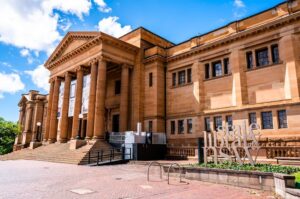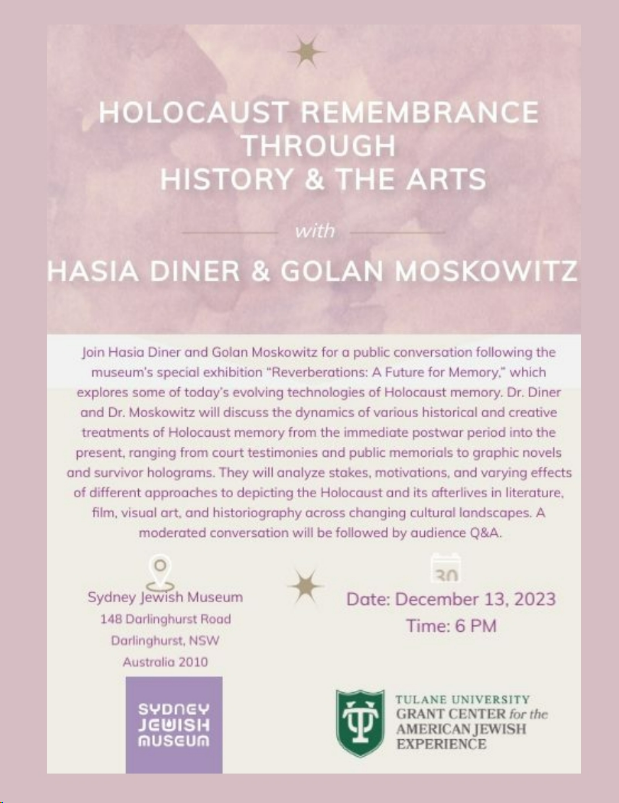- Initiative: Conference
Histories of Migration and Global Capitalism Conference: Australia
From the mid-nineteenth century onwards, hundreds of millions of people were uprooted or left their homes in search of wealth and a better life, for themselves and their families. Many sought escape from terrible hardship at home.

The expansion of global transport options and information networks presented potential migrants living in remote or poor regions of the world with new opportunities in places like Australia, Canada, South Africa or the United States including the promise of gold, or land, or untapped natural resources. Cheap labor was also in high demand in industrializing centers.
But these migration routes were not necessarily one-way streets. While migration history, particularly to these parts of the world, is traditionally understood within a settler framework, many seeking their fortune or escaping persecution did not necessarily come to stay in one place, but instead, were often highly mobile. Migrants were embedded in commercial, family and information networks that connected original homelands and new places, often moving between them to maintain old ties and creating new opportunities. At the same time, diasporic communities were often marginalised in the polities and economies of their new homelands, and often created their own cultural and economic spaces even as they were made a target of racial anxiety by white settler populations. The conference series sought to bring scholars of different migrant communities together to explore the period of mass migration since 1850.

While the focus of the organizers was Jewish histories of mobility and trade, and global capitalism within both American and transnational contexts, we anticipated that this conference, and associated workshops would facilitate an innovative collaboration between scholars of Jewish and non-Jewish histories, and between scholars in the northern and southern hemispheres, that would open new areas of inquiry and create new connections in migration history.
Themes we considered included:
- Gender, work and mobility
- Hidden economies
- Ethnic capitalisms
- Diasporic networks (local and global)
- Migrant spaces and neighborhoods
- Family networks and mobilities

Conference Schedule
9:00 AM-Registration
Location: Dixson Room in the Mitchell Building
9:45 AM-Opening Addresses
Opening addresses by Timothy O’Leary, Head of School for Humanities & Languages UNSW Sydney and by Dr. Michael R. Cohen of the Stuart and Suzanne Grant Center for the Jewish American Experience
Location: Dixson Room in the Mitchell Building
10:00 AM-11:30 AM Migrant Economies & Ethnic Networks
Chair: David Slucki
Moderator: Rebecca Kobrin
Speakers: Sophie Loy-Wilson, James Adams, Jan Lanicek, Ava Kahn, Rebecca Kobrin.
Location: Dixson Room in the Mitchell Buildin
11:45 AM-12:30 PM Migration in Colonial Frameworks
Chair: Nicholas Doumanis
Moderator: Victoria Haskins
Speakers: Joy Damousi, Andonis Piperoglou.
Location: Dixson Room in the Mitchell Building
1:30 PM-3:00 PM State Policies & Immigration
Chair: Ebony Nilsson
Moderator: llana Horwitz
Speakers: Sheila Fitzpatrick, Andrew Markus, Suzanne Rutland, Sarah Grandke.
Location: Dixson Room in the Mitchell Building
3:30 PM- 5:00 PM Gender & Migration
Gender and Migration
Chair: Ruth Balint
Moderator: Hasia Diner.
Speakers: Mina Roces, Claire Lowrie, Eureka Henrich, Golan Moskowitz
Location: Dixson Room in the Mitchell Building
6:30 PM- 8:00 PM Keynote Address with Mae Ngai & Rebecca Kobrin
Location: Metcalfe Auditorium
*Doors open at 6:00 PM
The keynote address with Mae Ngai & Rebecca Kobrin is complimentary for all conference attendees. Any additional tickets can be purchased here
https://events.humanitix.com/mae-ngai-book-talk
Workshop Schedule for Panelists
10:00 AM- 11:00 AM Discussion: “Particulars of Place: Australia and the United States”
Moderated by Hasia Diner, Nicholas Doumanis and Suzanne Rutland
Location: Dixson Room in the Mitchell Building
11:00 AM- 12:00 PM Methodological Questions of Writing
Diasporic History with Mae Ngai
Location: Dixson Room in the Mitchell Building
12:00 PM-1:00 PM Lunch
Location: Dixson Room in the Mitchell Building
1:00 PM- 3:00 PM Workshop & Discussion
Location: Dixson Room in the Mitchell Building
3:00 PM- 3:15 PM Break
Location: Dixson Room in the Mitchell Building
3:15 PM- 4:30 PM American Jewish History: Moving Forward
Michael Cohen moderates a conversation with Hasia Diner, Ava Kahn, Rebecca Kobrin with a response from Mae Ngai
Location: Dixson Room in the Mitchell Building
4:30 PM- 4:45 PM Closing remarks by Ruth Balint & Michael Cohen
Participating Scholars
Rebecca Kobrin
-
Columbia University
Ava F. Kahn
Mae M. Ngai
-
Columbia University
Hasia Diner
-
New York University
Michael Cohen
-
Tulane University
Golan Moskowitz
-
Tulane University
Ilana Horwitz
-
Princeton University Press
-
Tulane University
Ruth Balint
-
University of New South Wales
Victoria Haskins
-
University of Newcastle Australia
Suzanne D. Rutland
-
University of Sydney
Andonis Piperoglou
-
The University of Melbourne
-
International Australian Studies Association
Andrew Markus
-
Monash University
Claire Lowrie
-
University of Wollongong Australia
Jan Lanicek
-
University of New South Wales
Eureka Henrich
-
University of New South Wales
Sheila Fitzpatrick
-
The University of Chicago
Sarah Grandke
-
University of Regensburg
Joy Damousi
-
The University of Melbourne
Mina Roces
-
University of New South Wales
